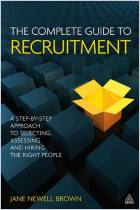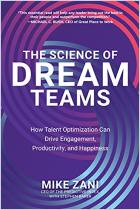
Recommendation
Too many organizations suffer from outmoded or ineffective hiring systems. According to recruiting experts Jon Stross and Daniel Chait, technological tools like applicant tracking software (ATS) will do little to help your hiring woes in and of themselves. The authors offer practical guidance to help firms transform chaotic hiring practices into strategic systems. The authors may slightly overstate the rewards you can expect from investments in hiring, but they make a convincing case that better recruitment practices yield a solid return on investment.
Summary
About the Authors
Daniel Chait and Jon Stross are co-founders and, respectively, the CEO and President of Greenhouse, a recruiting technology firm.
Learners who read this summary also read
Book
Book


















Comment on this summary or 开始讨论